If you are ambitious and on the road to a career in accounting, you’ve probably asked this question: is it better to become a CPA vs CMA? These are two separate paths that have different checkpoints along the way. While neither is categorically better than the other, there are major differences that will impact the steps you take in how to become a CMA or CPA. Read on to learn:
- What is a CMA?
- What is a CPA?
- What’s the difference between a CMA and CPA?
- How do you get a CMA?
- How do you get a CPA?
Plus important information on the CMA and CPA exams, cost, requirements, and salary projections. All of this info should give you major insight into which of these is right for you.
CMA: Certified Management Accountant
CMA stands for Certified Management Accountant. This is a certification that connects financial accounting and business leadership. You get a CMA through the Institute of Management Accountants (IMA). There are a few steps to take to get a CMA, the first of which is to take the CMA Exam.
Another important regulatory body you should know about is the Institute of Certified Management Accountants (ICMA). They are the ones who outline CMA certification requirements. Once you pass the CMA exam, you’ll have to accomplish the necessary work requirements.
People who become CMAs develop financial strategies and work in business leadership jobs such as Cost Accounting, Corporate Controllers, Senior Accountants, Chief Financial Officers (CFOs), and VPs of Finance.
CPA: Certified Public Accountant
CPA stands for Certified Public Accountant. This is an official license that qualifies someone to practice public accounting. To become a CPA, you need to pass the CPA exam, which is administered by the American Institute of Certified Public Accountants (AICPA) and the National Association of State Boards of Accountancy (NASBA).
After passing the challenging CPA exam, candidates will have to follow state-specific regulations that may mandate between one and five years of work experience.
People who become CPAs oversee accounting departments and can practice accounting in various capacities. Some jobs you may get as a CPA are public accountant, tax accountant, forensic accountant, internal auditor, and financial planner.
CMA | CPA | |
Number of Parts | 2 | 4 |
Exam Cost
and Related Fees | Estimated total cost:
$1,345 IMA Membership: $39-$245 (varies by the type
of membership) CMA Entrance Fee: $188-$250 ($188 for students only) Exam Registration: $622-$830 ($415/part, or
$311/part for students) | Estimated total cost:
$1,500 Application: $50 to $200 (varies by state) Exam: $833.60 ($208.40/section) Exam Registration: $300 (varies by state) CPA Ethics Exam: $150 – $200 (not required for all states) |
Testing Windows | January - February May - June September - October | January - February April - May July - August October - November |
Average Pass Rate
on First Try | 40% | 48% |
Continuing Education
Requirements | 30 hours/year | aprox. 40 hours/year (depending on the state) |
Experience
Requirements | 2 years of Financial Management | typically, 1-2 years under the supervision of a licensed CPA, but varies depending on state |
| CMA | CPA |
|---|
Accounting Designations: CMA vs CPA
How to become an accountant and which certification to get depends on your career goals. Both CMAs and CPAs have great career opportunities. There are, however, many differences in both the process and actual jobs these accounting designations lead to.
When you’re weighing the CMA vs. CPA, you’ll want to get a feel for what people with these credentials actually do. It may be useful to directly ask people in your circle for real-life examples of CMA jobs versus CPA jobs.
If you are more intent on achievements in a business leadership role, the CMA may be a better fit. However, if hardcore number-crunching and processing tax returns is more your style, a CPA track may be right for you.
Let’s break it down further into the exam, cost, and requirements necessary to get either a CMA or CPA.
CPA vs CMA: The Exams
First, the exam. How hard is the CPA exam, versus the CMA exam?
Both the CMA exam and the CPA exam are difficult tests that require intense study. This is because they encompass vast bodies of accounting and financial information. Here is a further breakdown of what the CMA exam will be like versus what the CPA exam will be like. These details alone could influence the path you end up taking.
CMA Exam
The CMA exam is a two-part test. Each part covers different areas of finance and accounting knowledge.
CMA exam part 1:
- External financial reporting
- Planning, budgeting, and forecasting
- Cost management
- Internal controls
- Performance management
- Technology and analytics
CMA exam part 2:
- Financial statement analysis
- Corporate finance
- Risk management
- Investment decision
- Decision analysis
- Professional ethics
The CMA exam content is relevant to your decision because it indicates the valued proficiencies for this designation. Analysis and strategic thinking are key to earning the CMA designation. CMAs are going to be well-prepared for management and business leadership.
The CMA exam is no joke. If you’re trying to pass the exam on the first try with limited amount of time available for study, consider taking CMA test prep courses to boost your chances of success.
CPA Exam
The CPA exam is a four-parter. These four sections cover a broad range of accounting topics:
- Business Environment and Concepts (BEC)
- Auditing and Attestation (AUD)
- Regulation (REG)
- Financial Accounting and Reporting (FAR)
There are a variety of competencies tested on the CPA exam. Test-takers will need sufficient mastery of both the conceptual framework and tasks related to things like economic concepts, corporate governance, risk assessment, and federal and state taxation. People who pass the CPA exam should be able to specialize in any of these areas and find a variety of opportunities for employment.
CMA Exam Parts | CPA Exam Parts |
Part 1: Financial Planning, Performance, and Analytics | BEC: Business Environment & Concepts |
Part 2: Strategic Financial Management | FAR: Financial Accounting & Reporting |
AUD: Audit & Attestation | |
REG: Regulation |
CMA vs CPA: The Cost
The breakdown of the cost could impact your decision for becoming a CMA versus a CPA. There are some up-front costs that relate to pre-reqs (which I’ll get to in a minute), but first is the exam-specific costs related to the CMA and CPA.
CMA Exam Cost
There are some case-specific contingencies related to the CMA exam cost. The cost can vary depending on whether you are a student or academic.
Generally, the CMA exam starts with a registration fee of $250. Each CMA exam section costs about $415.
Other costs include:
- An IMA membership, which may cost up to $220 each year.
- A CMA exam review course, which can range from about $700-$2100.
The total cost for the CMA exam could range from $1,500-$3,000.
CPA Exam Cost
The CPA exam also has a registration fee that can vary by state. It may cost between $50 and $200 to register for the CPA exam. Once you’ve secured a spot, each section of the CPA exam costs a little less than $200.
Other costs include:
- Registration fee per section, which could range from $175-$250 for all four.
The total cost for the CPA exam could range from $3,000-$5,000.
CMA vs CPA: The Requirements
The next point of consideration is what steps you have to take before and after the all-important exams. Check out our detailed articles to see if you meet the CMA education requirements and CMA experience requirements, and how to approach getting accounting certifications without a degree.
Here are how the CMA v CPA requirements stack up:
CMA Requirements | CPA Requirements |
Any kind of 4-year bachelor’s degree | 4-year bachelor’s degree in accounting plus 150 hours of coursework |
Two years of work experience in financial management or management accounting | Two years in public accounting |
Ongoing CMA requirements: each year, CMAs have to complete 30 hours of continuing education. | Ongoing CPA requirements: each year, CPAs have to complete 40 hours of continuing education. |
CMA vs CPA: The Salary
Salary expectations for a CMA versus salary expectations for a CPA play a key role in most people’s decisions. Because there are several different kinds of jobs you could get with each, the best way to estimate is to follow the media compensation from the IMA.
Baseline numbers have CMAs earning $113,000 a year and CPAs earning $105,903 a year. Both accounting designations can occupy the C-suite and have top-level executive jobs, but because of the business acumen most CMAs are known for, they average a slightly higher income.
CMA Designation vs CPA License: What to Choose?
At the end of the day, choosing between a CMA and CPA is a personal decision. Both are high-earning accounting careers with a ton of potential. Knowing which is right for you will come down to your personal interest and ambition.
If you’re ready to investigate further, here are some resources:
CPA:
Get the #1 guide on how to become a CPA
Learn more about the best CPA review courses
CMA:
Your CMA roadmap
How to become a CMA
CMA review course comparison
CMA Toolkit
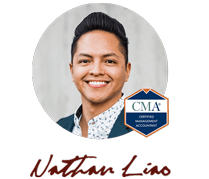
Hi, I’m Nathan Liao (aka the CMA Coach)! For the last 10 years, over 82,000 accounting and finance pros came knocking at my door seeking guidance and help. If you’re also aiming to conquer the CMA exam on your very first try—without wasting away time or money—you’ve found your ultimate guide. Dive in deeper to discover more about me and the dedicated team that powers CMA Exam Academy. Click here and let’s embark on this journey together!

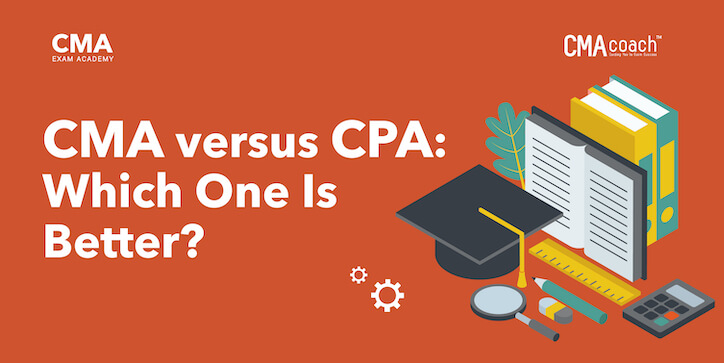
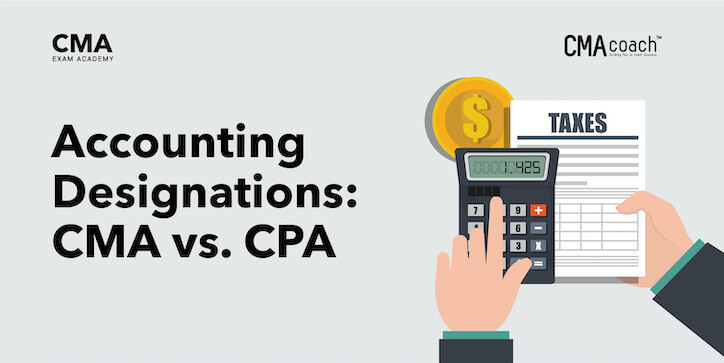
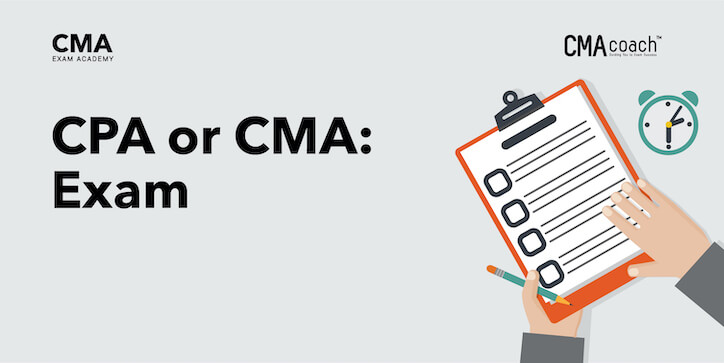
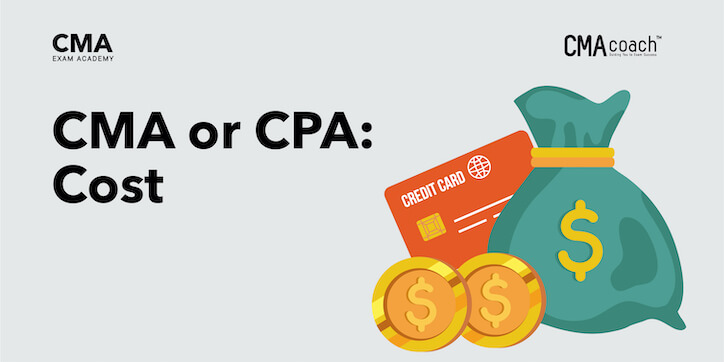
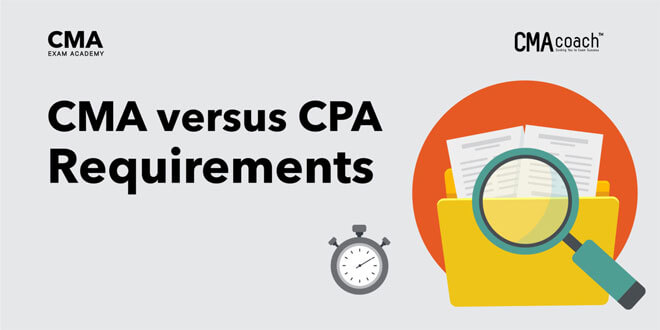
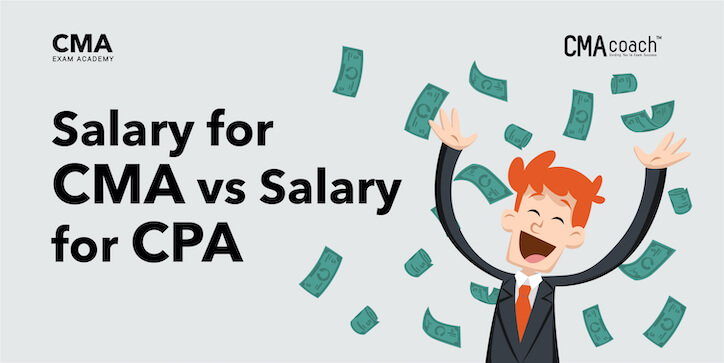
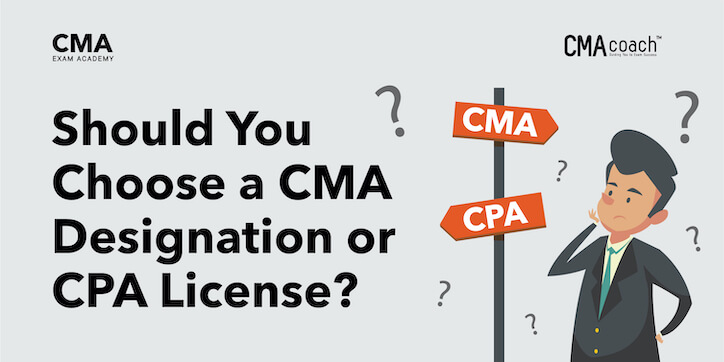
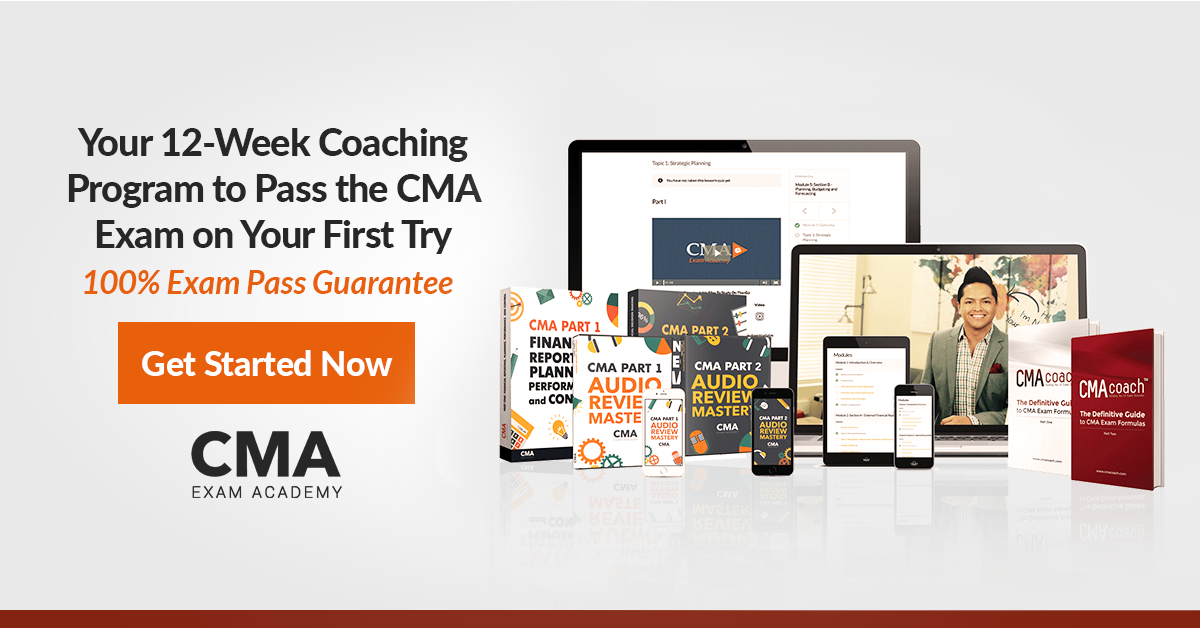
2 Comments on “CMA vs CPA: Which One is Better in 2024?”
I’m interested to study first cpa to get hands on practice and book keeping and then can move towards the cma. So is there anything you could help me with like free materials.
Hi Mona,
For CPA guidance, please visit my blog http://www.cpaclarity.com
To learn more about the CMA designation click here.
Please don’t hesitate to reach out if you have any other questions.